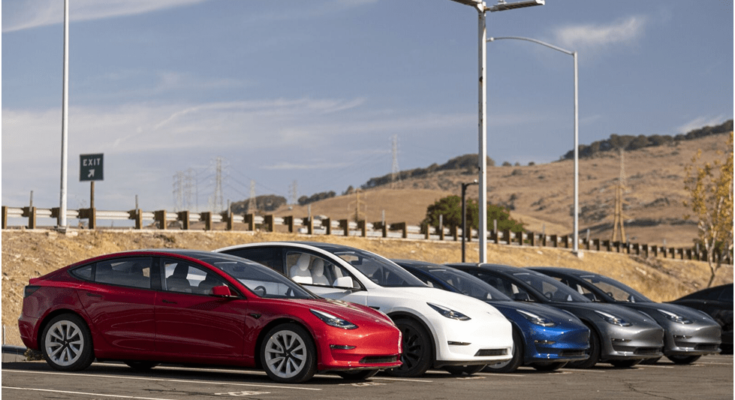The future of automotive and transportation is one of change and innovation. The way we transport people and products is changing as a result of the numerous difficulties the world is facing, including climate change, population increase, and urbanisation. Shared mobility, self driving cars, and electric vehicles (EVs) are just a few of the technologies that are anticipated to have an impact on the way we travel in the future.
Electric Vehicles (EV)
One of the most significant changes in the automotive industry is the shift towards electric vehicles. Governments all across the world are establishing ambitious targets for the adoption of EVs as concerns about climate change and air pollution increase. In fact, a deadline for the phase-out of internal combustion engines has been set in several countries. It is expected that this will encourage the creation of new technologies and infrastructure.
Electric vehicles have various advantages over gasoline-powered vehicles. Given that electricity is less expensive than gasoline, they have lower operating costs. Additionally, they have zero tailpipe emissions, making them a more environmentally friendly choice. Besides this, as battery technology advances, EVs will be able to travel farther, making them more useful for longer journeys.
The demand for charging infrastructure will grow along with the number of EVs on the road. To make it easier for EV owners to charge their vehicles, governments and private companies are investing in the construction of charging stations, including fast-charging networks.
Self-Driving Cars
Another technology that is expected to shape the future of transportation is autonomous vehicles. Self-driving cars such as Tesla are already on the roads, and they are rapidly getting popular. Autonomous vehicles have the potential to expand mobility for those who are unable to drive, improve safety, and lessen traffic congestion.
Shared mobility is another trend that is expected to shape the future of transportation. In many places, services like ride-hailing and car sharing are already popular and it is anticipated that this trend will continue. These services can lessen the demand for personal vehicles, which can aid in reducing emissions and traffic congestion.
Benefits of Electric Vehicles
One of the main advantages of EVs is their low operating costs. EVs run on electricity, which is less expensive than fuel, as opposed to conventional gasoline-powered vehicles. This means that EV owners can eventually reduce their fuel expenses. Additionally EVs have fewer moving parts than gasoline-powered cars which means they also require less maintenance.
Another benefit of EVs is that they emit no pollution at the tailpipe. Because they don’t emit harmful pollutants like carbon monoxide and nitrogen oxides, they are a better option for the environment. In cities where air pollution is a serious issue, this is especially crucial.
Also Read: Useful Tips Help You To Get the Perfect Minibus
Other benefits of EVs:
- Reduced dependence on fossil fuels: EVs are powered by electricity, which can be generated from a variety of sources, including renewable energy sources such as wind and solar power. As a result, there is less dependency on finite fossil fuels, which contribute to climate change.
- Quieter operation: EVs make relatively little noise, which lowers noise pollution and enhances the quality of life in urban areas.
- Government incentives: A lot of governments all over the world are providing incentives to promote the use of EVs, including tax credits, subsidies, and exemptions from certain rules.
- Climate Impact: Electric vehicles (EVs) emit fewer greenhouse gases (GHG) than vehicles with combustion engines. An EV is typically easier to manufacture than a standard gasoline-powered car.
- Better driving experience: Electric motors provide instant torque and smooth power delivery that results in a better driving experience.
Types of Electric Vehicles
There are mainly two types of Electric Vehicles. Electric Cars and Electric Bikes. There are more types of EVs available such as Electric Powered Trucks, Electric Scooters and more but we will talk not about them here.
Electric cars
Electric cars, also known as battery electric vehicles (BEVs), are vehicles that run solely on electricity stored in a battery. Since they don’t have an internal combustion engine, they produce no pollutants when driving. They can charged by plugging into a regular electrical outlet or an electric charging station.
The main advantages of electric cars include lower operating costs, as electricity is cheaper than gasoline, and zero emissions making them a cleaner option for the environment. They offer a better driving experience than cars powered by gasoline since they have rapid torque and seamless power delivery. They operate pretty quietly as well.
Today’s market offers a wide range of electric car models from numerous companies, notably Tesla, Nissan, Chevrolet, BMW, and Ford, to mention a few.
Depending on the brand and type, electric car prices can vary. Many models now have a range of over 200 miles on a single charge, this means you can go on long trips without worrying about running out of charge.
Electric Bikes
Electric bikes, commonly referred to as e-bikes, are bicycles with an electric motor. They have a small electric motor and a battery that can be recharged to help the rider pedal. They are getting more and more popular as a form of transportation, especially in cities where parking and traffic jams can be issues.
The main advantage of electric bikes is that they give an easy and quick way to travel around, especially for short journeys. They emit no pollutants and don’t require any fuel, making them a more environmental friendly option than cars. They are also less expensive to purchase and operate than cars and require less maintenance.
There are many different types of electric bikes available on the market today. Including throttle-controlled bikes, which can be powered without the need for pedalling, and pedal-assist bikes, which only offer power when the user is pedalling. Some electric bikes have a range of up to 60 miles and a top speed of up to 20 mph on a single charge. Depending on the brand and model, electric motorcycles’ prices can vary greatly, although they are often less expensive than cars.
Electric Bikes are a great alternative of fuel and electric cars. They are less expensive and more affordable to maintain. Many different brands are available in market with different models. Few popular e-bike manufacturers are Lectric, Aventon, Rad Power Bikes, Ride1Up and more. And with the increasing popularity brands are competing to give the best featured bikes in affordable prices. And they are able to do it by running exclusive electric bike promo codes. These bikes are perfect for short commutes and errands. For example; going to grocery store, going to work or to roam around the town.
Conclusion
In conclusion, change and innovation are key components of the automotive and transportation industries’ future. Electric vehicles, self-driving cars, and shared mobility are just a few of the technologies that will influence the future of transportation. These innovations may promote public transportation while enhancing safety and lowering pollutants.
It is more crucial than ever to invest in innovative technologies and infrastructure that can assist to develop a sustainable transportation system for the future in order to support the growth of EVs as the globe continues to face issues like climate change, population expansion, and urbanisation.




